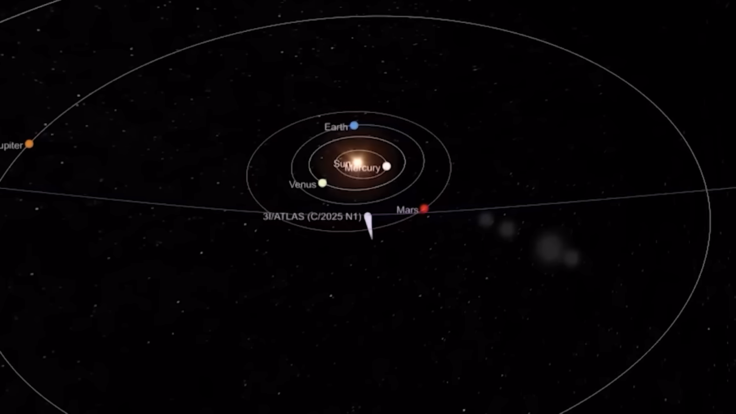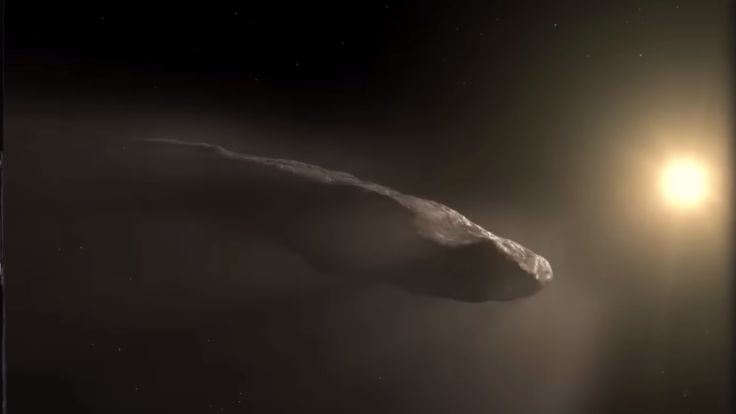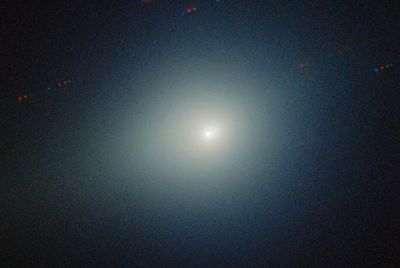Avi Loeb Issues Dire Warning: Earth Will Burn, Humanity Needs a Space Ark
Is 3I/ATLAS an alien ship? Avi Loeb's 'space ark' theory vs. scientific scepticism on the interstellar comet.

The solar system is currently playing host to a fascinating visitor, the interstellar object 3I/ATLAS. For most astronomers, it is a rare scientific opportunity. For Harvard astrophysicist Avi Loeb, however, it is a sign that humanity must urgently confront its own extinction.
Loeb has ignited a firestorm of controversy by linking his dire predictions for Earth to this mysterious object, proposing a radical solution: humanity must build a 'space ark', and it must start now. His reasoning draws on long-standing, controversial theories that have now crystalised around this new celestial traveller.

3I/ATLAS and the Case for a 'Space Ark'
Loeb's calls for a 'space ark' are a dramatic response to what he sees as a collection of inevitable doom. He cites multiple existential threats, including self-inflicted ones like climate change, the rise of artificial intelligence, or a catastrophic asteroid impact. He has also warned that a catastrophe could be triggered by alien technology, a possibility he insists humanity must prepare for.
Rather than focusing on the monumental challenge of colonising a hostile planet like Mars, Loeb argues for a different path. As summarised in this post, he proposes that humanity should pool its resources to build a self-sustaining, rotating space platform—a 'Noah's Spaceship'. He suggests this is entirely feasible, noting:
'We spend $2.4 trillion yearly on military budgets. Redirect a fraction toward a NOAA-style ark in space. Within this century, we'll create habitats better than Mars'. This ark, he believes, is our only insurance policy.

Unpacking the 'Anomalies' of 3I/ATLAS
Loeb's recent urgent warnings are directly linked to his focus on 3I/ATLAS. He has publicly highlighted several 'anomalies' concerning the interstellar object, which he argues call its natural origin into question. These include its unusual brightness, its calculated mass, and the hyperbolic shape of its orbital path, which he feels are not easily explained by conventional comet science.
This has led him to speculate publicly that 3I/ATLAS could be an artificial 'Trojan horse' or even an 'alien mothership'. He suggests it may possess technological capabilities or, more ominously, 'malevolent intent'.
In an October 2025 Medium essay, Loeb wrote that the object's close approach in December 2025 would be an 'acid test' of its nature. He provocatively wondered if it would release 'mini-probes towards Earth as Christmas gifts to humanity'. This is a claim other scientists strongly reject, pointing to more likely and natural explanations for the object's behaviour.

The Scientific Scepticism Surrounding 3I/ATLAS
Loeb's provocative theories about 3I/ATLAS have been met with significant scepticism from the scientific community, even as they generate extensive public discussion. Many scientists have criticised Loeb for making sensational claims without peer-reviewed evidence. They contend that his public statements bypass the proper scientific process and risk harming the credibility of legitimate research into extraterrestrial life.
This is not the first time his claims have been debunked. In 2024, one team of seismologists showed that Loeb's celebrated claims of an interstellar meteor impact in 2014 were likely based on a seismic signal from a truck, not a meteor. In his defence, Loeb argues that science needs to be more open to unconventional ideas and that the public is intensely interested in these 'romantic' questions about humanity's place in the cosmos.
While other respected figures, like Stephen Hawking, have made similar suggestions about the long-term need for humanity to leave Earth, Loeb's specific linkage of this necessity to the unproven, speculative nature of 3I/ATLAS has triggered renewed and heated debate.
Ultimately, the debate surrounding 3I/ATLAS is a collision of two very different ideas: one of romantic, existential speculation and one of data-driven scientific process. While the broader scientific community continues to gather evidence pointing to a natural, if unusual, comet, Avi Loeb uses the object as a powerful symbol for his long-held warnings about humanity's future. Whether 3I/ATLAS is a 'Trojan horse' heralding a new era or simply a fascinating interstellar snowball, its journey has undeniably forced a provocative conversation about our place in the cosmos.

As this visitor continues its path and more data is released, the choice remains with the public: whose 'acid test' will you trust? Follow the peer-reviewed data from NASA and the global astronomy community to understand the science, or follow the philosophical questions of Avi Loeb to ponder our very survival.
© Copyright IBTimes 2025. All rights reserved.



















